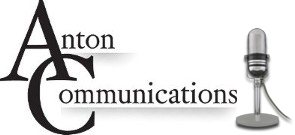A recent survey of corporate board members by Deloitte, an international risk management firm, exposed a large gap between the perception and reality of their company’s readiness to handle a crisis.
More than three-quarters (76%) of surveyed board members believe their companies would respond effectively if a crisis struck tomorrow. But less than half (49%) of their companies have taken steps to be truly crisis-ready.
At Anton Communications, we ask potential clients a series of questions to determine their company’s preparedness level.
- Who is on your crisis communications’ team?
- Have you identified all stakeholders, their specific concerns and how best to reach them?
- Are there established notification and monitoring systems in place?
- Do you have a written crisis plan in place?
- Is it driven by specific risk scenarios?
- Does it prepare you to handle a range of potential financial, legal, product, administrative, operational and infrastructure-related crises?
- Have you recently conducted any exercises to test its practicality, flexibility and effectiveness – and your readiness?
- Is your spokesperson media trained?
- Do you have templates for emergency holding statements, news releases and Q&A’s for various scenarios?
- Do your employees know exactly what to do if a crisis hits?
If a client can’t answer these questions, or most of the responses are “no”, then we know they need assistance creating a professional crisis plan.
This is where we come in.
Anton Communications Inc. is a Southern California-based strategic public relations firm serving a broad list of clients regionally and nationwide. Our broad range of public relations and marketing specialties include PR services, crisis communications, issues management and media training. Our experience team will customize your crisis communications plan based on the issues most likely to arise in your industry, which stakeholders might be affected and what messages to communicate while you are working hard to solve the crisis.
If you would like to find out if your company is crisis-ready, contact us at www.antonpr.com or 714.544.6503.
A GIFT FOR YOU: Below is a link to an easy-to-digest infographic summary of Deloitte’s “A Crisis of Confidence” survey.





